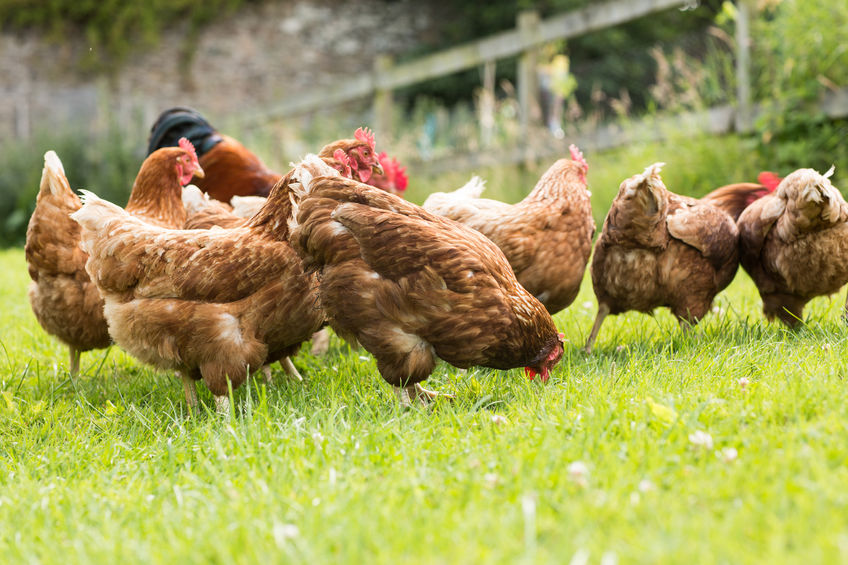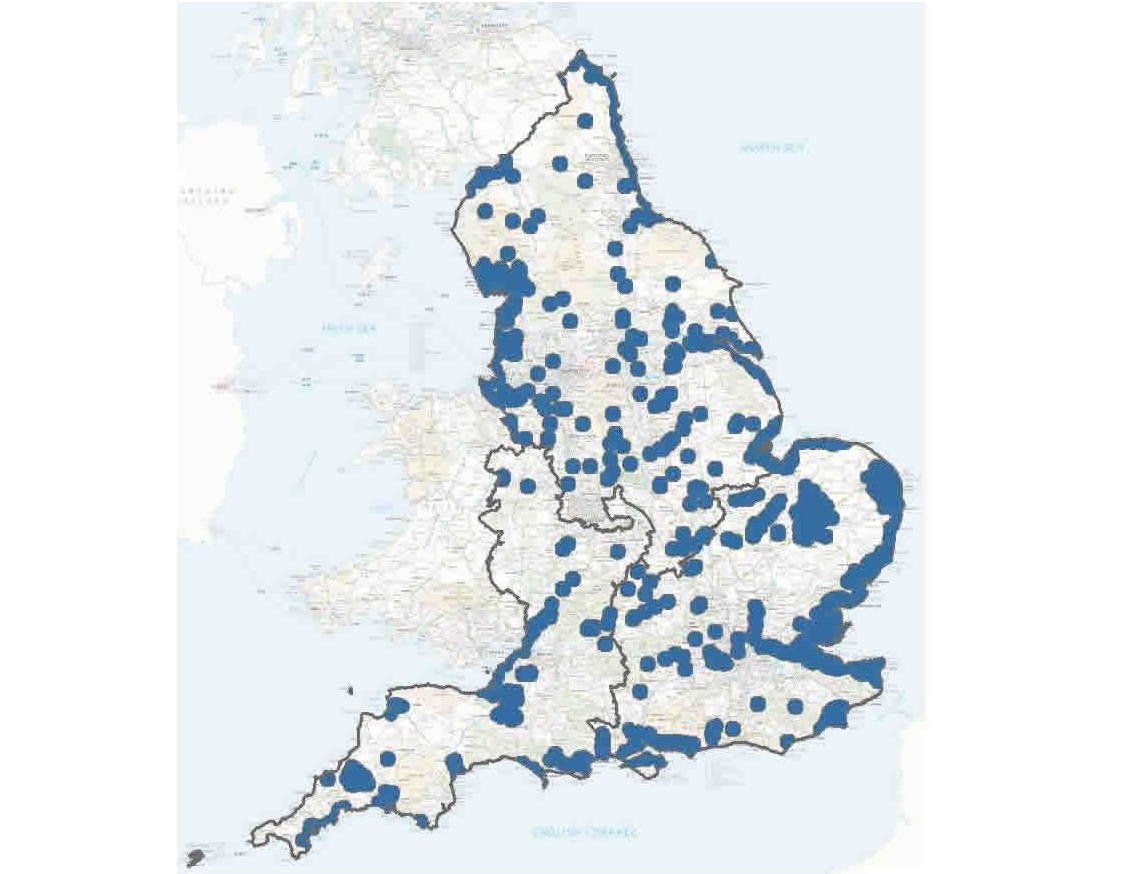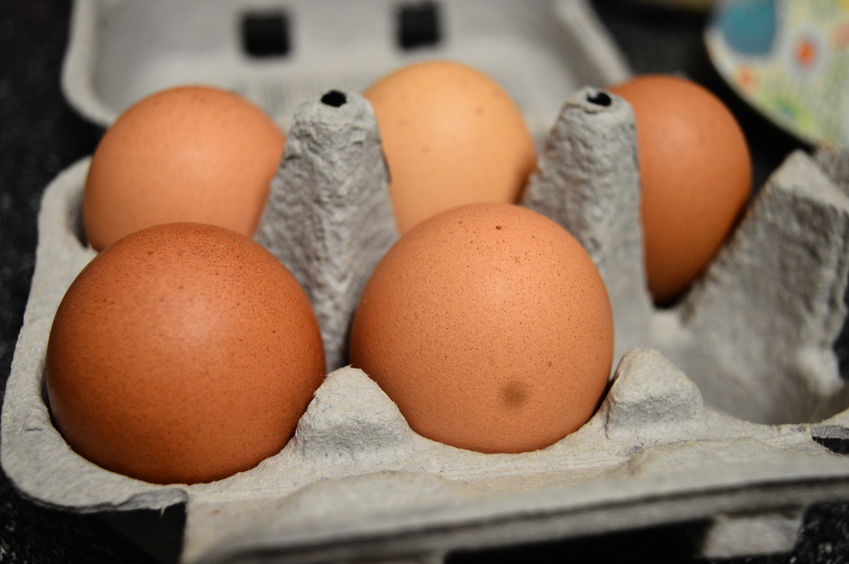
The Government has agreed to act to avoid a crisis in the free range egg industry by lifting the housing order imposed to protect against avian influenza from 1 March.
Ministers had been warned that the whole of the United Kingdom's free range flock would lose its free range status if birds continued to be locked up beyond the end of this month.
Under European Union rules free range birds can only be housed for a maximum of 12 weeks before their eggs are downgraded to barn. In the United Kingdom the 12 weeks come to an end on February 28.
Egg industry leaders have been pressing the Government to prevent free range status being lost.
The Department for Environment, Food and Rural Affairs (Defra) now says it will lift the housing order (download the PDF) from the end of February to prevent downgrading, although the order will continue in force in what Defra sees as high risk areas of the country - particularly areas close to outbreak sites.
Cases of high path H5N8 have been found on three turkey farms in Lincolnshire, on a number of game units in Lancashire and in backyard flocks in Wales and North Yorkshire.
Very tight new bio-security measures
Robert Gooch, chief executive of the British Free Range Egg Producers' Association (BFREPA) told FarmingUK he was pleased that the housing order would be lifted, although he said the association would continue to work on behalf of producers in the high risk areas whose birds would have to remain housed and consequently lose their free range status.
"I am delighted that, in principle, birds will be out, although subject to very tight new bio-security measures," he said.
"There will still be producers in high risk areas where the housing order will continue to apply. We will be working hard on their behalf on the implications for labelling and pricing in particular."
Mr Gooch said he did not know yet how many producers would continue to be subject to a housing order.
Nationwide housing order
The nationwide housing order was put in place in early December for 30 days before any cases of highly pathogenic avian influenza had been found in the UK.
At that time H5N8 cases had been confirmed in many countries in continental Europe, and the housing order was an attempt to prevent the virus being transmitted to commercial poultry in this country by migrating wild birds. When cases began to arise in the UK, Defra announced that the order would be extended until the end of February.

As outbreaks began to mount, concern began to grow that the housing order may be extended beyond the end of February and that free range flocks would lose their status.
Egg industry leaders in the UK began lobbying the Westminster Government. They also joined forces with farmers in other EU countries to ask the European Commission to allow free range status to be maintained beyond 12 weeks.
Deadlines have passed in the Netherlands, Germany and France with no resolution, but the UK Government has now agreed to act to prevent a crisis.
'Relieved'
Robert Gooch said that most producers would be relieved at the Government's decision.
“Our members have coped fantastically with the unprecedented challenge of housing their birds. They have focused on the welfare of their flocks at all times and will be hugely relieved if they are able to let birds out again on March 1," he said.
Mr Gooch has previously said that having their eggs downgraded to barn would be disastrous for the country's free range producers.
Estimates obtained by FarmingUK indicate that the cost to the free range sector of downgrading the 18-million-bird free range flock could be more than £80 million.
The BFREPA chief executive said he was pleased with the Government announcement, and he urged producers to rigorously comply with a list of additional bio-security measures outlined by Defra to ensure that the risk of avian influenza continued to be minimised.
This list includes draining ponds and areas of standing water or covering or netting them if this is not possible. Producers are urged to fence off these areas and also to remove any sources of food for wild birds.
Farmers are being advised to decontaminate their ranges, cleanse and disinfect concrete and other impermeable areas, apply shavings and woodchip - the resin in shavings and woodchips is thought to have virucidal properties - and harrow the ground to help kill any virus present. The number of people visiting a farm should be limited and foot dips should be available for necessary visits.

"I would urge producers to make sure that they strictly follow all these measures," said Robert Gooch.
"They should make sure that they are doing everything necessary in readiness for the housing order being lifted at the end of the month."
Lobbying
Lobbying in Europe has been less successful than here in the UK.
The issue was raised by both Dutch and Belgian representatives at a meeting of the EU Agriculture and Fisheries Council in January.
Agriculture commissioner Phil Hogan said he would work to find a solution but said there was no easy solution: "I appreciate that this is a difficult issue, particularly in member states in which the 12-week confinement period is coming to an end, after which eggs cannot be classified as free range," he said.
"There is no easy solution to this matter, given the need to maintain the integrity of labelling and information for consumers who are prepared to pay a premium of up to 20 or 30 per cent for these free range products in the confident knowledge that they paying for what they are getting.
“It’s an issue that requires further reflection. That reflection needs to consider all the possibilities available. We will be working with member states over the next couple of weeks to see if we can get a resolution to this important matter."
Maintaining free range marketing status
Mark Williams, chief executive of the British Egg Industry Council (BEIC) explained the nature of the egg industry's submission to the EU.
"BEIC is requesting that a derogation is provided to Commission Regulation (EC) No 589/2008, Annex II, point 1.a., to allow free range flocks that remain housed after March 1 in Great Britain under veterinary order to be able to maintain their free range marketing status. This would remain in place until such time as veterinary authorities determine that the disease situation allows for any housing restriction to be lifted - possibly in a further one to two months."
He said, "It is our view that we are in exceptional circumstances across the EU and this calls for exceptional measures to be put in place.
“The simple solution is for the EU Commission to allow the 12 weeks to be extended for a further one to two months to get past this time of heightened disease challenge."
Avoiding a free range crisis
In the UK, the BEIC has been working hard to persuade Ministers to act to avoid a free range crisis.
It started exploring ways of lifting the housing order at the same time as maintaining bio-security.
Mr Williams said: "Whilst we would be guided by veterinary advice, in the face of potentially losing free range egg marketing status - which we cannot allow to happen - we believe that the AIPZ (avian influenza protection zone) must be lifted on February 28 across Great Britain, but with the maintenance of high levels of enhanced bio-security”
It was the AIPZ order that included the instruction to house poultry.
Retailers express concern
Retailers have also expressed their concern that a solution should be found.
If the whole of the UK flock has its status downgraded after February 28, supermarkets will be left with no source of supplies at a time when free range eggs are more popular than ever with consumers.
Individual retailers did not want to comment at the moment, although they made it clear that they were in discussions with the BEIC, the British Poultry Council, the National Farmers Union and Defra.
The British Retail Consortium (BRC), which represents the British retail industry, is also involved in talks.
A BRC spokesman told FarmingUK: “As producers are required by law to bring the birds indoors to prevent the spread of the virus, the free range status of eggs is maintained and they will be marketed and labelled as free range.
“We are working with Defra to find a pragmatic solution that mitigates any negative impact on free range farmers should the enforced housing period extend beyond the 28 February, when the derogation from free range regulation ends.”
761 outbreaks
Outbreaks of highly pathogenic H5N8 have been found across large parts of Europe and also in other parts of the world.
Between October and January there were a total of 761 outbreaks of H5N8 in Europe - 51 per cent in poultry and the rest in wild birds. Some 1.6 million poultry were destroyed.
As well as affecting 18 countries in Europe, H5N8 has also been found in Asia, Africa and the Middle East.
At a recent briefing in Paris, FarmingUK asked OIE (World Organisation for Animal Health) director general Monique Eloit about the issue of AI and the threat to free range egg production.
She said that political decisions about rules for free range poultry ordered to be housed were not a matter for her organisation, but she said: "Many countries are developing free range farms, not only for ducks but also for hens. Therefore they have access to outdoors.
“Therefore that means that, for the farmer, the management is always more difficult to manage. It is always more difficult to manage disease when animals are outside. They have potential contact with wild birds.
“It is always very difficult to keep the area clean, not only for AI but also for many diseases. We have to find the right balance between AI concerns and consumer expectations," she said.
Criminal offence
Defra said the housing order was imposed under Article 6 (4) of the Avian Influenza and Influenza of Avian Origin in Mammals (England) (No.2) Order 2006. It is an offence to not comply with the Order under section 73 of the Animal Health Act 1981.
Poultry keepers who breach the order could face an unlimited fine and/or imprisonment for up to six months.
A spokesman said a breach of the housing restriction was solely an offence under section 73 of the Animal Health Act 1981. It would not affect the marketing of the eggs, he said.
